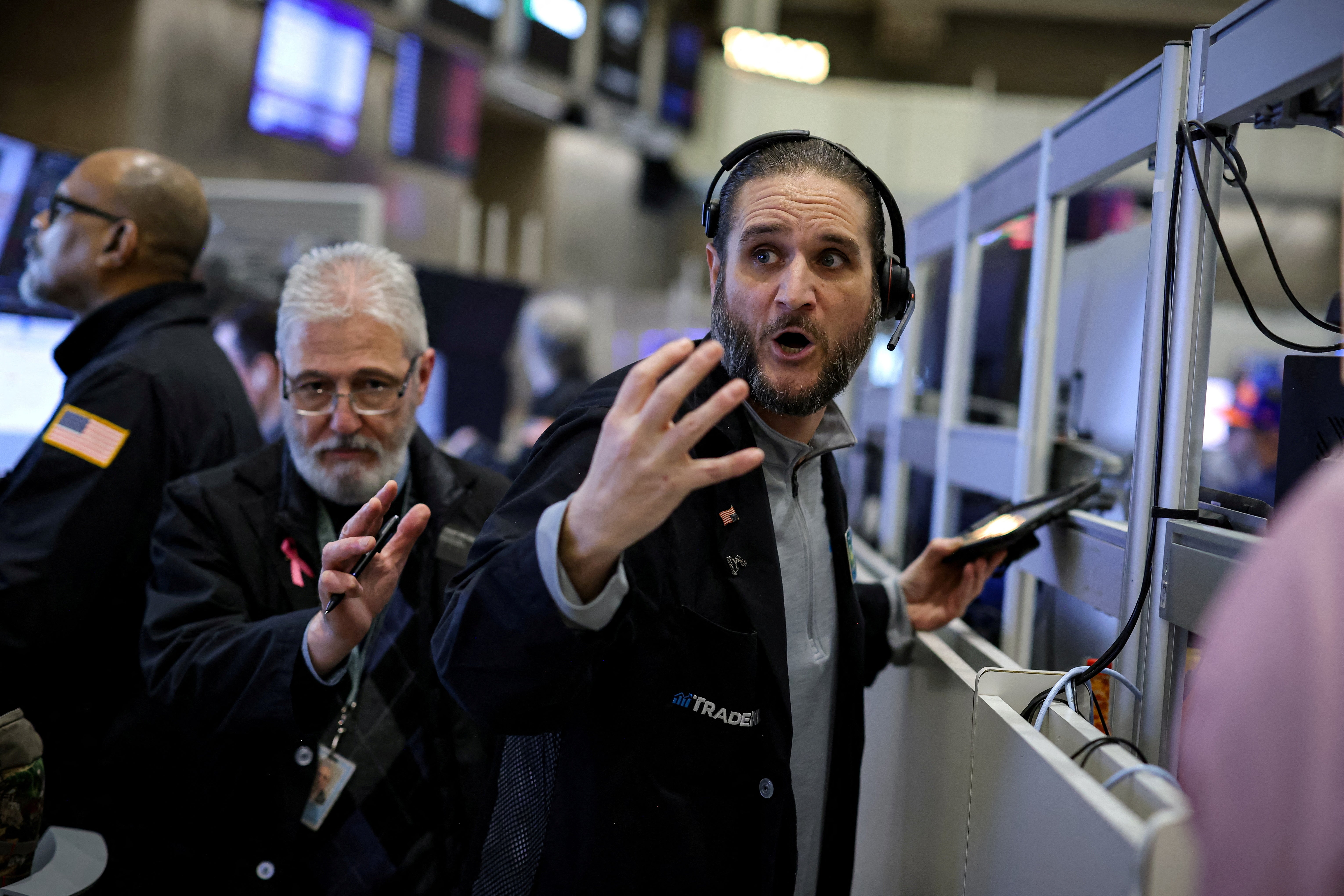A president’s words can move markets. But when a president speaks in two-minute-long sentences, without punctuation, and is prone to long tangents, it can be difficult for the markets to know which way to go.
After days of turmoil in the world’s largest economy (for now), Donald Trump was given the opportunity on Monday to calm investors’ fears by explaining his sweeping global tariffs to an anxious nation.
The markets waited with bated breath as the press gathered in the Oval Office. For those looking for clarity, or a reprieve, this was not it.
“We’ve been ripped off and taken advantage of by many countries over the years, and can’t do it anymore. Just can’t do it anymore. Can’t be the stupid people anymore,” a combative Trump said in his first substantial comments after $6 trillion was wiped off the market after the president announcement of his new global tariffs.
“It’s all because of the people that sat in the seat right here, not your seat, but this seat. They allowed things to happen to our country that they shouldn’t have allowed to happen on trade and other things, many other things. I mean, look at what’s happened with our last president, where he allowed millions of people to come into our country with an open border. Who would want an open border?” Trump continued.
As Trump spoke, the Dow Jones Industrial Average ticker rose, then fell, and rose again, before flatlining its way to the close — a visual representation of the exhaustion felt by anyone with retirement savings.
With tariffs, Trump appears to have found a giant lever with which he can inflict the maximum amount of influence with the minimum amount of oversight. Trillions of dollars have vanished from the value of companies in recent days in reaction to his announcements, all for the gamble of a restructured economy sometime in the future.
Economies are built on certainty and stability, and the last few days have been anything but.
The most tangible piece of news of Trump’s press gathering came when he denied he is considering pausing the tariffs in response to the turmoil they have produced.
“Well, we’re not looking at that,” he said, implying that the beatings will continue until morale improves.

Trump did little to tackle the contradictions about whether the tariffs were a negotiating tactic or a radical plan to rebuild the American manufacturing industry from the bottom up by making foreign-made goods unaffordable.
“MY POLICIES WILL NEVER CHANGE,” Trump wrote on Truth Social last week.
“This is not a negotiation,” White House trade advisor Peter Navarro told Fox News on Sunday.
Today, that changed.
“We have many, many countries that are coming to negotiate deals with us, and they’re going to be fair deals, and in certain cases, they’re going to be paying substantial tariffs. There’ll be fair deals,” Trump said.
When questioned about the paradox he has created, Trump replied: “They can both be true. There can be permanent tariffs and they can also be negotiations, because there are things that we need beyond tariffs.”
More confusion for the poor traders on Wall Street.
Trump also had the opportunity to allay the fears of the middle-class Americans whose lives could be turned upside down by the volatility in the economy. The markets impact retirement savings, jobs and inflation, and the president has been credited by his supporters for his ability to connect with blue-collar Americans.
“I said we’re gonna try and get groceries down right? An old-fashioned term, but a beautiful term. Eggs. So when I got in, the press went absolutely crazy the first week. They said eggs have quadrupled in price. I said, I just got here. Tell me about it,” Trump said.
“Our team did a great job, and eggs are down now 79 percent and they’re all over the place. And this was a problem that somebody else would have taken a long time to cure. We have energy is down. We have interest rates are down. We have groceries, meaning food is down. We have everything is down at levels that nobody ever thought possible.”
When a reporter asked Trump how long the tariffs would last, his answer was — again — open to interpretation.
“We have now $7 trillion of commitments from companies wanting to go in, from Apple to many, many companies, many from Taiwan,” he said.
“It takes time. You gotta build a thing called a factory. You have to build your energy. You have to do a lot of things,” he said.
The weary stock ticker flickers and slumps.



